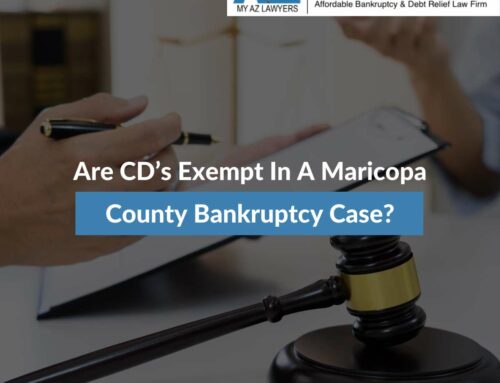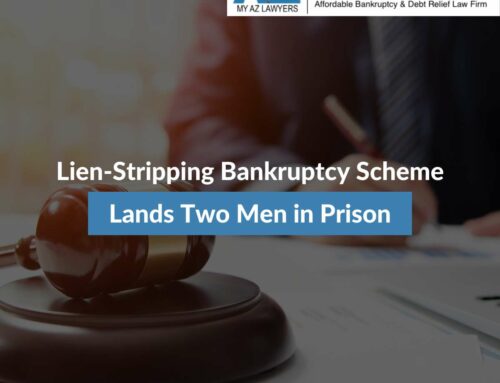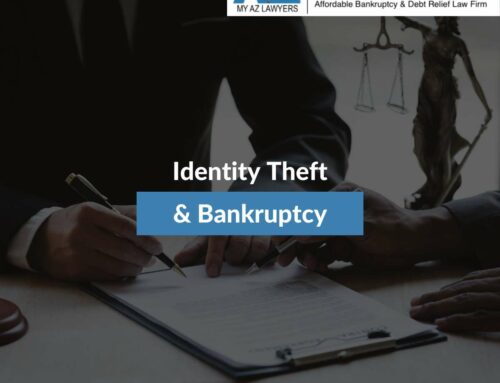Everything You Need To Know About The Bankruptcy Courses
Bankruptcy provides tremendous benefits and can leave the debtor with a clean slate after their case has been discharged. But everything that bankruptcy has to offer doesn’t come without some eligibility restrictions and other requirements of the debtor. The two most common forms of personal bankruptcy are chapter 7 bankruptcy and chapter 13 bankruptcy. While they are different, a debtor who files either type of bankruptcy is required to complete two credit counseling and debtor education courses. This is a key step in the bankruptcy process because it helps ensure that the debtor makes better financial choices moving forward and avoid subsequent bankruptcy filings.
Many people are discouraged from filing for bankruptcy when they learn about the credit counseling course requirement. Counseling sounds like therapy, and many people struggling with debt don’t feel uncomfortable when discussing their spending habits and other personal finances. But credit counseling is the first type of course required for a bankruptcy filing, and it must be completed before filing. The second course required is a debtor education course. It should be completed after the 341 hearing. Both of these courses needed to be completed and accurately filed for debts to be discharged.
The bankruptcy courses are just one piece (or two pieces) of the puzzle if you decide to declare bankruptcy. Your income needs to be calculated correctly, exemptions need to be applied to your assets, your creditors must be included on your creditor mailing matrix, and countless other options need to be selected carefully or your case could be subject to delays or dismissal. With your entire financial situation at stake, most bankruptcy debtors benefit from hiring skilled counsel for their cases. Our dedicated Arizona bankruptcy team can guide you through each step of the process so that your debts are cleared effectively. Most of our clients are eligible to file for bankruptcy with our Zero Down payment plan option, which allows you to pay for your bankruptcy in affordable installments after filing. It all starts with your 100% free consultation by phone. Call 480-470-1504 for more information and to schedule your free consultation.
Taking The First Credit Counseling Course
Your first course certificate should be filed when you file the rest of your bankruptcy petition, whether it is under chapter 7 or chapter 13. We don’t recommend waiting until the morning you intend to file your petition to take your course. If you are filing your case on a deadline- think to stop a vehicle repossession or wage garnishment– you can’t risk things like an internet outage or sudden illness be the reason you couldn’t complete your credit counseling course before filing. You can complete your first credit counseling course up to 180 days, or 6 months, before filing. You can take it as soon as you are sure about your decision to file so your case is prepared to be filed when you are.
You should take your first credit counseling course with an approved credit counseling agency. Your attorney should provide you with a link to their preferred choice in credit counseling provider. You can take your course either online or over the phone, but some providers charge extra for over the phone courses. The fees for credit counseling courses are usually fairly reasonable, or within a $20-40 range. If a married couple is filing for bankruptcy jointly, they will both need to complete the course, and can avoid extra costs by taking it together. The course will cover subjects like budgeting, interest rates, using credit cards, and personal financial management.
When completed online, the first credit counseling course should generally end within an hour or an hour and half. Your course should provide you the option to save your spot and come back from where you left off if it is more convenient to complete the course in smaller portions. The course provider is not responsible for filing your course completion certificate with the court. Although you can print it yourself instantly, your attorney should also be provided with a copy of the certificate and file it with your petition on your behalf. Failure to include your course certificate in your initial filing could potentially result in your case being dismissed. A dismissed bankruptcy doesn’t discharge debts and could yield none of your intended goals.
Taking The Second Debtor Education Course
Your 341 Meeting of Creditors is a hearing typically held about 30-45 days after you file for bankruptcy. Creditors have 60 days after this hearing to submit any complaints or objections they may have about the case. During this 60-day period, the debtor must also complete a second credit counseling course and make sure that certificate is filed to supplement their bankruptcy petition. This course is actually considered a debtor information session rather than a credit counseling session. If the debtor fails to submit the certificate within that 60-day time frame, the case can be dismissed. Therefore, like the first credit counseling course, we don’t recommend waiting until the last minute to complete and file your second credit counseling course. It can be surprisingly easy to forget the second course, and you don’t want to end up in a last-minute time crunch because you procrastinated completing an online course. The second course is required by law to be 2 hours long. The second set of curriculum includes additional topics like personal finance, money management, and financial literacy.
What Information Do I Need To Provide During These Courses?
There is certain information you can expect to become relevant during your credit counseling and debtor education courses. Some of the information you should have available, or at least have a good estimate of, during your courses include:
- Income information for all household earners
- Your monthly budget and expenses
- Information about any pending lawsuits against you
- Information about any garnishments or repossessions your creditor is seeking
- A summary of your debts
- An inventory of your assets and possessions
- Documents from any prior bankruptcy filings
- Court orders regarding child support, spousal maintenance, etc.
- Any information relevant to the circumstances leading you to file for bankruptcy
Frequently Asked Questions
Will my course completion certificates automatically be sent to the court?
No. If you have an attorney, your course certificate should be automatically forwarded to them once you finish the course and it will be your attorney’s responsibility to file it in court. Otherwise, you will be responsible for completing this task yourself. It is not the crediting counseling course provider’s responsibility to complete any of your case filings.
How long will it take me to complete the courses?
It varies from person to person and on other factors like internet speed and distractions around the house. If you focus and don’t encounter issues, it will be closer to an hour, or else it might be more like 2 hours. The second course is longer than the first course.
Which types of bankruptcy filings require credit counseling?
A debtor who files for bankruptcy using chapter 7, chapter 11, chapter 12, or chapter 13 must complete credit counseling.
Can I complete the credit counseling and debtor education courses in one session?
No. The first course must be completed before filing, and the second course must be completed after the 341 Meeting of Creditors within 60 days. Therefore, they cannot be completed within the same session.
Can the credit counselor provide me with advice about my case?
The credit counselor can only provide information, not advice. They are not your legal counsel and should not be giving you specific directions about legal choices in your case.
What if I can’t afford the fees to take my credit counseling courses?
You may qualify for a fee waiver based on ability to pay. A debtor whose household income is at or below 150% of poverty level is entitled to a fee waiver. Other factors, like receiving public assistance, can also be considered when determining whether a fee waiver is appropriate. Some course providers will not grant a fee waiver if you have paid for bankruptcy representation.
Can someone besides the debtor pay for the courses?
Yes, it generally should not be an issue to have someone else pay for a debtor’s credit counseling courses.
Do all members of my household need to be present for the courses?
Anyone who is listed as a debtor on the petition should complete the credit counseling courses. For a married couple filing jointly, both spouses, but not other household members, should complete the courses. For one spouse of a family unit filing individually, no one else in the household needs to attend.
Can I still file my course completion certificate if it contains errors?
No, you should contact the course provider to have the errors fixed and your certificate re-issued.
Is the counselor I speak to during my first course AI?
The counselors you chat with during your first session are real people. You should keep this in mind when considering tone in the chat and that it may take them a little while to respond to your messages. The tradeoff is often well worth it to receive feedback from a human rather than a computer.
Call Our Office With Your Questions About Filing For Bankruptcy In Arizona
Do you want to relieve yourself of the responsibility of filing your course completion certificates during your bankruptcy case? What about researching every part of your bankruptcy filing, knowing that mistakes could result in your assets being taken or your case being dismissed? There are several moving parts to a successful bankruptcy filing, starting with the decision between chapter 7 and chapter 13. Once you figure out your eligibility, then you can learn more about what will happen in bankruptcy given your personal circumstances. Review your situation over the phone with an experienced professional in bankruptcy today. Call 480-470-1504 to schedule your free consultation with an experienced member of My AZ Lawyers.
Mesa Bankruptcy Law Office
4065 E University Dr #500
Mesa, AZ 85205
(480) 470-0005
Phoenix Bankruptcy Law Office
668 North 44th Street, Suite #300
Phoenix, AZ 85008
(480) 833-8000
Glendale Bankruptcy Law Office
My AZ Lawyers
20325 N. 51st Ave.
Suite #134
Glendale, AZ 85308
(623) 640-4945
Tucson Bankruptcy Law Office
My AZ Lawyers
2 East Congress St. Ste. 900
Tucson, AZ 85701
(520) 306-8729
Avondale Bankruptcy Law Office
My AZ Lawyers
12725 W. Indian School Rd.Suite E, #101
Avondale, AZ 85392
(623) 399-4222
Additional Information at:
Phoenix Bankruptcy Lawyer
Mesa Bankruptcy Lawyers
Phoenix DUI Lawyer
Chandler Bankruptcy Lawyer
Tempe Bankruptcy Lawyers
Vegas Zero Down Bankruptcy Attorney
Gilbert Bankruptcy Lawyers
Tucson Bankruptcy Lawyer
Arizona Zero Down DUI
Las Vegas Bankruptcy Lawyers
AZ Bankruptcy Lawyer






